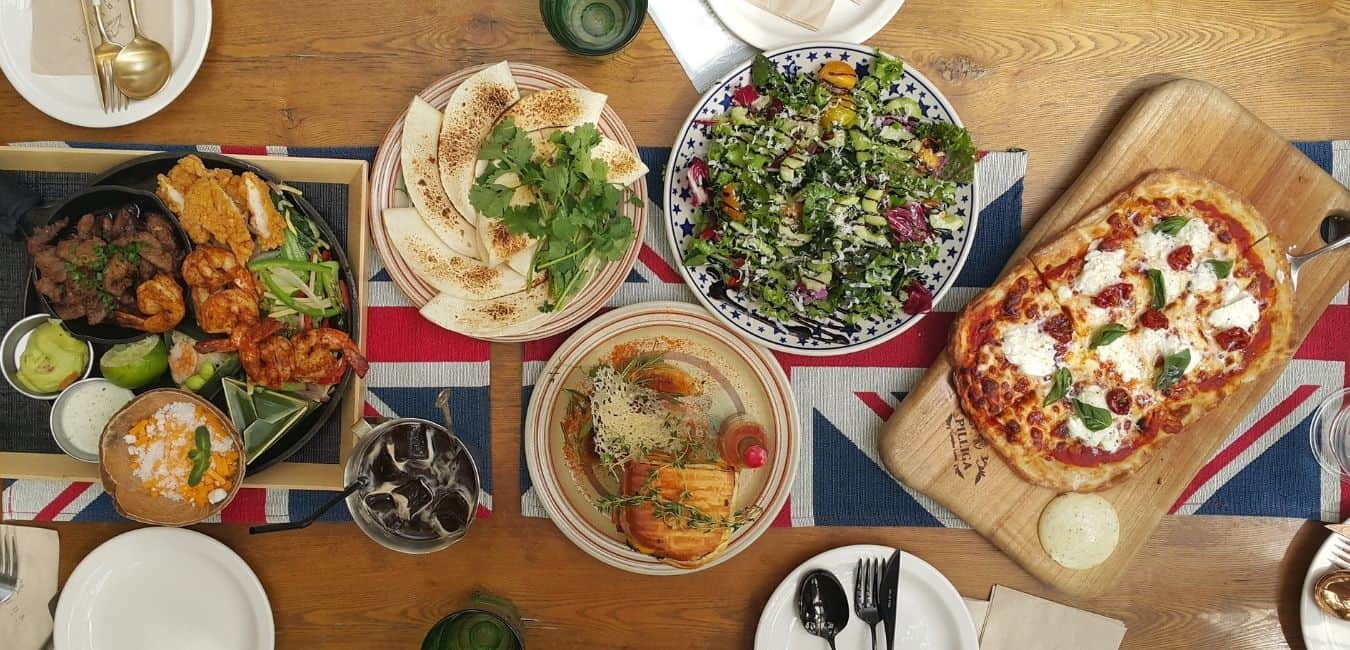13 Best Brain Health Foods for Memory Improvement
There are many reasons why you have a poor memory. It could be due to the way you learn, the way you eat, or even your age.
And stress, anxiety, depression, and lack of sleep can also make you forget things.
Improving your memory can be done in a number of ways. Some of the more popular methods include taking care of your body, practicing certain exercises, good sleep, and meditation.
More complete tips for improving your memory are in New! 23 Best Tips to Improve Memory Retention, Which Will Help You to Recall Information Easily.
However, in this article, you will learn that the most effective way to improve memory is to eat the right food.
Foods for memory are a fantastic source of vitamin E, selenium, and vitamin B12, all essential brain nutrients.
Avoiding foods that rob your mind of its memory benefits is as important as eating foods that support it. Poor quality fuel reduces brain development when the brain is forced to use it.
Take back control of your memory today with these brain-healthy foods.
Table of Contents
13 Best Brain Health Foods for Memory Improvement
1.Dark Chocolate
Dark chocolate with at least 70% cocoa content is rich in flavonoids, which increase the blood supply to the brain.
These flavonoids also keep the brain calm and relaxed, which is very important for scoring well on exams.
Dark chocolate improves memory by promoting blood flow to the brain.
So make sure that you eat two to three squares of dark chocolate a day. It also improves the flow of blood to the brain by relaxing arteries and veins, which reduces stress levels.
2.Milk
Milk is a near-perfect nutrient. It is rich in protein, calcium, and essential amino acids for the brain.
The calcium in milk is most easily absorbed and is essential for brain metabolism. In addition, it also contains elements such as vitamin B1, which is very beneficial to nerve cells.
If you use your brain excessively and have insomnia, a glass of hot milk before going to bed will help you fall asleep.
It is also good for the eyes. For people who are nearsighted, especially in children and young adults, drinking a glass of milk before going to bed can help with visual acuity.
3.Spinach
The nutritional value of spinach, known as the “king of vegetables”, has recently been studied to help maintain the brain’s youthful vitality.
Researchers at the University of South Florida fed rats a supplement made from spinach and found that some of their behavioral learning abilities increased and their responses became faster.
Dr. Bickford, who led the study, believes that spinach contains a lot of vitamins C, E, beta-carotene, and other antioxidants that protect brain cells from free radical damage.
The medical community has long suspected that free radical damage to the brain may increase the risk of developing Alzheimer’s disease.
4.Pineapple
Pineapple contains a lot of vitamin C and the trace element manganese, and it is low in calories.
It is often eaten to have a refreshing and energizing effect, and some people claim that it is the fruit that can improve one’s memory.
Pineapple is often a favorite fruit of some musicians, singers, and actors who have to memorize a lot of music scores, lyrics, and lines.
5.Oats
People with high cholesterol may want to have a bowl of oatmeal every morning.
Oats contain a soluble fiber called “beta-glucans” that can block the production and absorption of cholesterol, reducing the concentration of cholesterol in the blood to reduce the chance of developing Alzheimer’s disease in the future.
Research in the United States found that an average of just 3 grams of oats per day can reduce the cholesterol index by 5 to 6 units, and also reduce the risk of heart disease by about 12%.
6.Pumpkin and Pumpkin Seeds
Pumpkin is an excellent source of beta-carotene, an antioxidant that can help you have a healthy, young brain.
A Dutch study found that people who consumed a diet rich in beta carotene (such as dark leafy greens, carrots, bell peppers, sweet potatoes, papayas, mangoes, etc.) could maintain a sharper thinking ability throughout their lives.
As for the mineral zinc contained in pumpkin seeds, it is also an important substance to promote brain function, if the intake of zinc is not enough, it is easy to have memory loss and concentration problems.
Dr. Sanders of the University of Texas pointed out that the general lack of a small amount of zinc in healthy people, short-term memory will decline, but as long as the supplemental zinc, for example, women’s text memory will improve 12%.
7.Grapefruit
Guava, citrus (willow, grapefruit, etc.), strawberries, tomatoes, kiwi, cauliflower, etc. are all vitamin C-rich fruits and vegetables, and brain cells need the antioxidant function of vitamin C to protect them from free radical damage.
More importantly, vitamin C is also needed for the synthesis of acetylcholine, a neurotransmitter responsible for memory, so eat at least 5 servings of fruits and vegetables every day to ensure your body does not lack this important vitamin.
8.Eggs
Research published in The American Journal of Clinical Nutrition has shown that eating eggs may boost brain power, and that much of the benefit is likely to be due to choline, which is an essential nutrient for metabolism.
Egg yolk is rich in lecithin, which is the main raw material for the synthesis of acetylcholine in the human body.
Acetylcholine is a neurotransmitter that exists in the central nervous system and the peripheral nervous system, and a decrease in its concentration will result in poor memory.
In addition, eggs are also rich in vitamins A, E, B6, B12, folic acid, and zinc, which are important nutrients for brain activation, especially folic acid and vitamin B12.
Some people may wonder if they can eat eggs every day. The Journal of the American Medical Association has reported that eating one egg a day does not have to worry about causing high blood cholesterol problems.
Recent animal experiments at Kansas State University also found that the lecithin in eggs can inhibit the amount of cholesterol entering the bloodstream, so eating one to two eggs a day will have a limited effect on the concentration of cholesterol in the blood, so don’t worry too much.
9.Blueberries
Blueberries and other berry foods contain anthocyanins. Harvard University research has pointed out that anthocyanins are beneficial for the prevention of Parkinson’s disease, which can reduce the risk of developing by about 40%.
In addition, berries are rich in polyphenols, antioxidants, enhance cell activity are very helpful.
Scientists have found that the powerful antioxidants contained in blueberries may be helpful in slowing down aging, activating brainpower, and enhancing memory.
They divided a group of elderly people over 70 years old with premature memory loss into two groups, one of which drank 2 to 2.5 cups of blueberry juice every day for two months, while the other group drank other beverages (without blueberry juice).
8 weeks later, they were tested in relation to learning and memory, and the results showed that people who regularly drank blueberry juice had a significant increase in intelligence.
10.Whole Grains
Rich in vitamin E and vitamin B complex, folic acid, niacin, etc..
Vitamin B complex not only helps the body make full use of glucose, but also assists in protein metabolism, which is an essential nutrient for brain cells to maintain normal function; at the same time, B complex can prevent excessive homocysteine in the blood, reducing the risk of stroke, and further reducing the occurrence of vascular sclerosis dementia.
11.Deep-Sea Fish or Fish Oil
More than 50% of the human brain is unsaturated fat (including omega-3 fatty acids), especially omega-3 DHA is a very important component of the nerve cell membrane.
To maintain the normal functioning of the brain’s neurotransmission function, to help brain cells transport nutrients, and to remove waste, it is necessary to have sufficient DHA to achieve.
A Harvard University study found that people with high levels of DHA in their blood are less likely to develop Alzheimer’s disease in the future.
It is advisable to eat fish two to three times a week, especially fish rich in DHA, including salmon, tuna, sardines, mackerel, etc.
Vegetarians can consider flaxseed oil (not effective in high doses) or algae extracted DHA, which can also achieve the same effect.
12.Nuts
The lecithin contained in nuts not only activates brain cells, but also promotes the production of acetylcholine, the brain’s neurotransmitter, and helps the brain to be flexible and slow down the effect of aging.
In addition, vitamin E, selenium, and other powerful antioxidants can protect brain cells from free radicals. And according to a study by the U.S. Department of Agriculture, nuts also contain a mineral – boron, which can affect the electrical activity of the brain, making people more responsive.
13.Avocados
Avocados are rich in oleic acid, a monounsaturated fat that facilitates the production of a brain chemical called acetylcholine. This chemical helps you remember names, remember to do things, improve your attention span and your ability to learn new things.
It can actually help lower cholesterol and improve blood circulation. This can help improve not only brain health but other body systems as well.
The 5 Best Resources for Learning How to Cook Healthy and Delicious:
Knowing that those ingredients are good for brain health is not enough, but also to learn how to cook healthy and delicious food.
Over the last decade, cooking healthy and delicious has become much easier, thanks in large part to healthy cooking websites like Panna(Free Trial) and Veecoco(Free Trial).
Although these sites can provide great recipes, it’s important to remember that they are not the only source. Below is a list of the best resources that you can learn how to cook healthy and delicious.
Masterclass:
MasterClass is the first all-in-one learning platform that brings together the best of online education with the best of the classroom. They offer a collection of online courses taught by the world’s best experts on topics ranging from music, photography and filmmaking to cooking, painting and drawing.
To learn from these A-list celebrity instructors, you can either sit in the classroom or just watch on your phone or tablet. No matter where you are or what you are doing, you are going to be able to enjoy a MasterClass in the comfort of your own home. The teachers are the best of the best.
Many people want to cook healthy and delicious food for themselves and their families, but do not know where to start. MasterClass provides cooking classes that give you a step-by-step introduction to cooking healthy and delicious food without all the frustration.
Many people would like to learn how to cook healthier and more delicious meals. However, there are so many things that need to be done when cooking that it is hard to focus on the actual cooking. MasterClass provides a cooking class that is designed to teach you how to cook healthy and delicious meals while taking care of all of the things that need to be done when cooking.
Smart Kitchen:
In Smart Kitchen, they teach you how to cook delicious, healthy food. They start with 250 basic techniques and walk you step by step through 400+ cooking courses. They give you a systematic approach to cooking that works like traditional cooking school and applies to any cookbook or recipe. With Smart Kitchen, you can cook like a pro in the comfort of your own kitchen.
Panna:
Panna is an online culinary school that has been featured in The New York Times and Epicurious. It offers over 300 recipes and concise video lessons that explain why certain cooking methods are used and what they do to the food.
You can choose recipes based on the ingredients you have on hand and then browse the recipes to find the ones that look the most appealing to you. Panna is dedicated to showing you how to cook all sorts of different foods, so you are not intimidated by the kitchen and can make a healthy, delicious meal for yourself and your family.
It offers a free trial to new members.
The Great Courses:
If you are interested in cooking, The Great Courses has an impressive selection of online cooking classes that can help you learn how to cook delicious food, healthy food, and food that is just plain fun to eat.
They have cooking classes on baking, cooking with vegetables, Mediterranean food, and more. You can choose a well-rounded and immersive educational program or a more specific cooking course. Each course is taught by a professional chef, so you are sure to learn how to cook food the right way. The Great Courses has cooking courses for every interest and skill level.
FAQ:
What is DHA in food?
DHA is an omega-3 fatty acid that is found in food and can help with brain and eye development, as well as heart health.
What are the 5 Worst Foods for Memory?
- Sugar
- Processed carbohydrates
- Refined grains and flours
- Trans fats
- Alcohol
Which Fruit is Good for Brain Memory?
Blueberry is a low-sugar and low-calorie fruit that contains antioxidants. Blueberries are great for brain health.
What is the Number One Food that Fights Dementia?
The number one food that fights dementia is salmon. A study found that eating just one portion of salmon per week could slash your risk of dementia, including Alzheimer’s disease.
What can I Drink to Improve My Memory?
For people who want to improve their memory, they can drink herbal tea. The herbs in the tea will help them remember things better and be able to recall it in more detail.
How can I Improve My Memory Fast?
There are some ways to improve your memory.
The first is to make a habit of reading every day. It can be anything you want: news articles, books, or magazines. Reading will stimulate your brain and help you to remember things.
The second way is to sleep well. If you don’t get enough sleep, your memory will suffer.
And the third is to eat healthy foods. These will also help your memory.
RELATED:
Conclusion
As we all know, the ability to remember things is a critical part of life. The more we learn about the brain and how it functions, the more we realize that some of our favorite foods like blueberries, walnuts, and dark chocolate are actually good for brain health.
The only thing you need to do is to consume these foods today.






